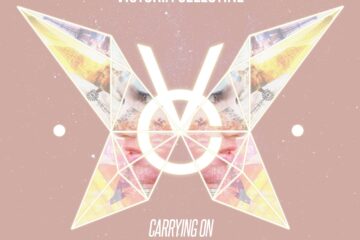Join the Poppy cult…
Occasionally, pop culture throws out an outlier artist that can equally delight and confound audiences.
Take, for instance, the unusual world of Poppy whose curious efforts first appeared through a series of increasingly surreal YouTube appearances. These videos opened up a window into the life of Poppy – or at least a version of Poppy that appeared to live in a strange dreamlike universe of muted pastel colours. With background music that could skip from pleasant electronica to more disconcerting tones, poppy’s distinctive high voice would often tell a story or present a philosophical point that had a strange, hypnotic effect leaving the viewer to wonder just what they’d just witnessed.
These oddly mesmerising monologues seemed to be a world away from presenting Poppy in a musical context, although the whole affair was designed to build a cartoon character of sorts with the music coming later.
Poppy (aka Moriah Pereira) actually started out in pursuit of a musical career by moving to Los Angeles in 2013. Teaming up with musician and film director Corey Mixter (who uses the pseudonym Titanic Sinclair), the odd videos paved the way for Poppy’s musical outings.
After signing to Island Records, she released her debut song (under the name of That Poppy), ‘Everybody Wants to Be Poppy’ in June 2015. The Bubblebath EP followed a year after and the same year saw the release of an ambient album titled 3:36 (Music to Sleep To), composed by Titanic Sinclair and Poppy, with assistance from polysomnographists from the Washington University School of Medicine.
All this has led to the release of her debut studio album, Poppy.Computer. As an album, it weaves in an assortment of influences that include J-pop, vaporwave and electronic pop. Originally written in Los Angeles, some of the album was also produced in Japan (working with Ryosuke Sakai, who had also worked with the likes of SHINee and Aya Hirano). In fact, there’s a lot of similarities between Poppy and J-pop star Kyary Pamyu Pamyu with a mutual love of striking visual themes and stirring pop melodies. Poppy’s ‘My Microphone’ shares some oddly familiar lyrical themes with Kyary’s ‘Ring a Bell’ and although Poppy’s material inevitably pulls to a western pop tradition, there’s clearly been an influence of sorts from the Japanese performer.
There’s a very simple musical palette at work on Poppy.Computer that works from an electronic base. There’s also elements of chiptune thrown into the mix, particularly on tracks such as ‘I’m Poppy’ and ‘Software Upgrade’. At the same time, there’s that surreal sense of humour evident on a lot of the the tracks on the album, such as ‘Computer Boy’ (“I want your floppy disk to be my hard drive”).
In fact there’s a recurrence of themes that play around with the idea of the internet and the idea of a digital future. The idea of Poppy as being a (literally) manufactured pop star is a concept that’s been explored since her early videos. It’s an idea that calls to mind characters such as Tommy February6, a “manufactured” J-pop star conjured up by Japanese musician and producer Tomoko Kawase (The Brilliant Green).
BUY NOW
Fans who like their electropop rendered in primary colours will find a lot to love here, particularly on the likes of ‘Let’s Make A Video’ and ‘Bleach Blonde Baby’, which sounds like a Madonna tune from the universe next door. Meanwhile, there’s simple pop confectionary on tracks such as the aforementioned ‘My Microphone’ whose lyrical theme is purely about Poppy searching for her microphone.
But perhaps the album’s finest moment is ‘Computer Boy’, which is an unashamed pop song with euphoric lifts and a simple, but engaging electronic percussion. With lyrics that are about Poppy’s love for her computer, it also serves as commentary perhaps on our internet-obsessed culture.
On the likes of ‘Fuzzy’ there’s more of a dabble in the waters that the likes of Katy Perry and Taylor Swift swim in. But there’s plenty of room for more Poppy-orientated bizarreness such as ‘Software Upgrade’ which, like ‘Computer Boy’ before it, interchanges the idea of people and computers with a wink to the audience (“I turn you off/I turn you on”).
An acoustic guitar on closing track ‘Pop Music’ seems like a strange conceit for an album that mostly focusses on electronic music, but it has a particular charm to it that serves as a reverie on Poppy’s ideas about pop music (“I think I like it”).
Poppy’s arrival confounded people at the time, particularly in a period in which “authenticity” was something that everyone had to wear on their sleeve (apparently). As a result, there were countless videos and articles trying to explain what Poppy actually was. These commentators missed the point completely but revealed a need for everything to be explained or deconstructed, forgetting that in the deconstruction the ideas that make such a concept work would be lost.
The smart construction of Poppy’s foundations instead built up a dedicated fan base. It’s a community that could, perhaps, have walked away once Poppy started doing music if the tunes weren’t up to scratch. But the strength of the material on Poppy.Computer demonstrates that this pop culture phenomenon is likely to be around for some time.
Poppy.Computer is out now on the Mad Decent label.
http://impoppy.com/
https://www.youtube.com/user/thatPoppyTV










